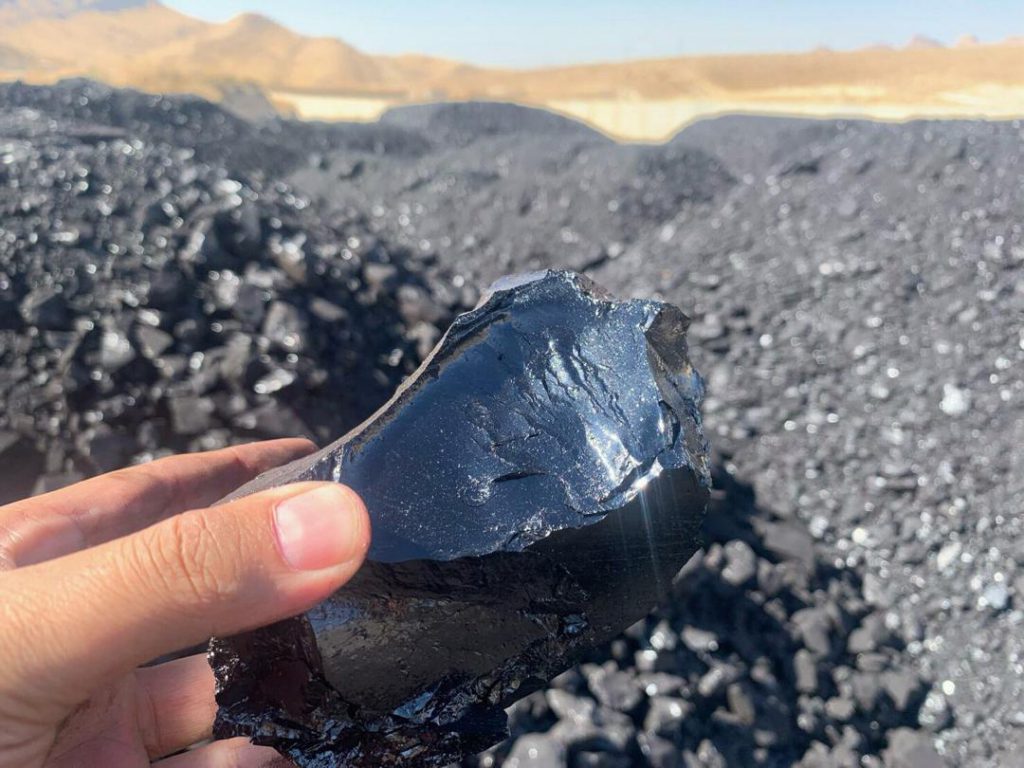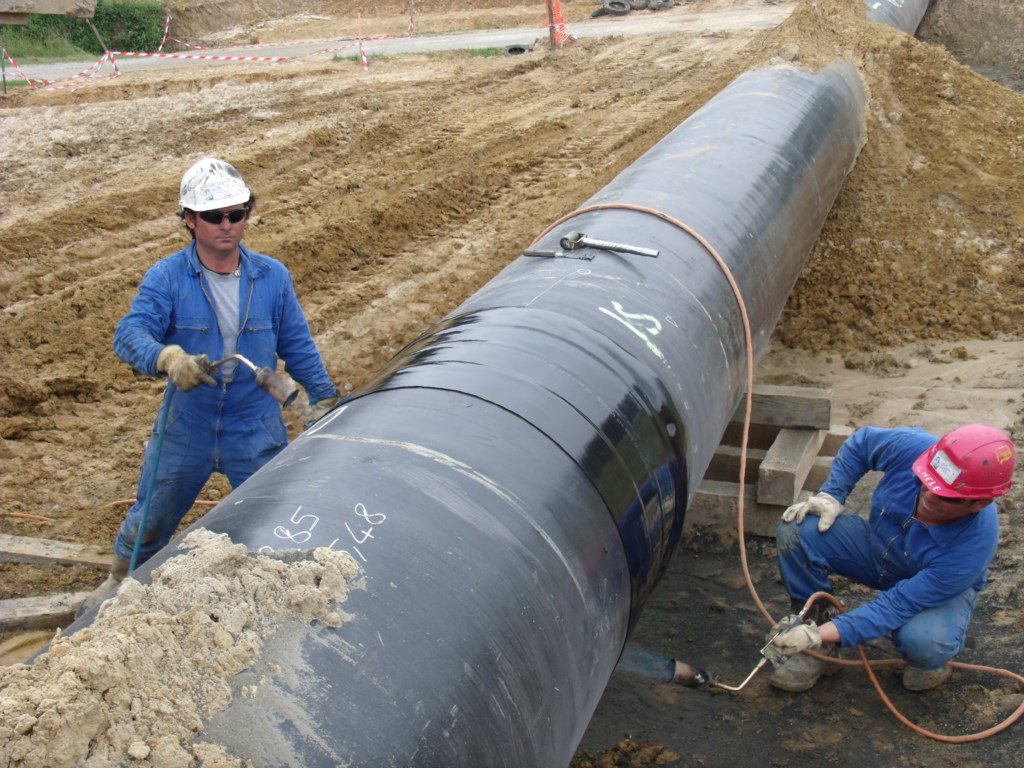Gilsonite paint/ Gilsonite usage in paint

Gilsonite in Paint
Gilsonite is a valuable resource and has a wide variety of uses, including asphalt paving mixes and coatings, chemical components in metallurgical, adhesive, coating, binder, ink, and paint products and uses in metal foundry and oil well drilling and well completions.
Natural Bitumen or Gilsonite has been used for a long time in the paint industry. This material is used in paints with a bitumen base. The high nitrogen content of Gilsonite increases the adhesiveness and the stability of the Gilsonite against ultraviolet light.This product is mainly used in coating the exterior surface as also creating resistance against acids,it is used as the coating for car chassis and coating of metal structures.
Gilsonite is added to bitumen-based paints to increase hardness, adhesion. UV stability, and water and chemical resistance. Gilsonite paint formulations are often used on automobile frames and radia-tots. Gilsonite is also an ingredient in wood stains.
in wood paintings it is used as dark brown paint. Due to the unique chemical and physical qualities of Gilsonite, it can lend useful characteristics to paints and polishing finishes. Gilsonite additive is Naturally Better and you just can’t get this performance with any other material.
Gilsonite provides these benefits
- superior binding properties for many materials
- UV light stability
- Fade-Resistant transparent pigment gives a deep,rich color,to wood stains
Gilsonite in Combination With Bitumen For Paint Use
In paint applications, Gilsonite is usually used in combination with bitumen (asphalt). In most cases, if Gilsonite is used alone, the final paint will be very hard and brittle after drying. If normal straight-run bitumen is used alone, the finished paint is too soft and tacky. Therefore, a combination of Gilsonite and bitumen is used to achieve the desired hardness (penetration) and drying time of the finished paint.
For hardness, Gilsonite has a zero (0) penetration (at 25°C; 100 gm. 5 sec.) compared to the 60-70 pen, 80-100 pen or softer bitumen commonly available from petroleum companies or asphalt manufacturers.
Actually approximately 90% of all bitumen is used for road construction and these hardness grades are acceptable for that purpose. However, they are too soft by themselves for the manufacture of paint and surface coatings which require hardness values around 5 penetration for acceptable paint drying. Paint films composed of bitumen alone are tacky if the penetration is more than 10, and are brittle if less than 4.
Air-blowing soft, road paving bitumens down to 5 pen is a common practice but this is an advanced aging process which damages the bitumen. Air-blowing upsets the colloidal balance of the bitumen which can lead to films of oil or wax exuding from the bitumen. If these films exude to the surface of the paint, the result is a loss of gloss. If these films migrate to the interface of the substrate, the result is a loss of adhesion which causes the paint to peel. Other disadvantages of using air-blown bitumen in paint formulations include gelling with certain solvents and large viscosity increases during the mixing of the paints or during their storage.
Therefore, rather than air-blowing a soft bitumen down to 5 penetration, that same soft bitumen may be transformed into a hard bitumen by modifying it with Gilsonite, avoiding the disadvantages of oil/wax migration and gelation. For example, adding about 35 to 50% Gilsonite to an 80-100 penetration bitumen will transform it to 5-10 penetration, suitable for paint making.
natural asphalt also improves the following
- adhesion
- Shine
- Chemical stability
- Water resistance and
- The consistency of paint
Gilsonite in Pipe Coating

Coating and painting by is a high quality coating with a brilliant, durable finish that is ideally suited for exterior surfaces such as metal and composition roofs, fire escapes, storage tanks, piping, structural steel, and all types of iron. It can also be used on concrete, masonry, or metal sidewalls. Coat and paints by Gilsonite is blend of gilsonite with oil based solvent, thus it provides excellent protection from water, sunlight and snow.
Gilsonite is used to make waterproof coatings for pipes. It is a natural non-toxic resin with excellent adhesion properties. A corrosion-resistant, chemically inert pipe coating can also be made from Gilsonite.
Gilsonite is used for preventing the pipes from corrosion and it acts as an additive in pipe isolator, which increases the pipe life significantly. Gilsonite is used in different industries as a resin for waterproofing purposes, for example in Automobile industry it is used as an additive in coating car’s under the body.
Packing of natural asphalt lump and powder form micronized
- Asphaltite in lump form like rock packed in the 500~1000 kg jumbo bag
- Asphaltite 200 mesh packed in the 500~1000 kg jumbo bag
- Asphaltite 300 mesh packed in the 500~1000 kg jumbo bag
- Asphaltite 30-40 mesh packed in the 500~1000 kg jumbo bag
- Asphaltite 100 mesh packed in the 500~1000 kg jumbo bag
- Asphaltite 300 mesh packed in 25 kg pp bag
- Asphaltite 200 mesh packed the 25 kg multi-paper bag
- Asphaltite 200 mesh packed the 50 lbs multi-paper bag
- Asphaltite 30-40 mesh packed pp bag on the pallet
Analysis of Natural Asphalt for Paint Application
| NO | TEST | RESULT | TEST METHOD |
| 1 | ASH CONTENT,WT% | 1.5 | ASTM-D3174 |
| 2 | MOISTURE CONTENT,WT | 1% | ASTM-D3173 |
| 3 | VOLATILE MATTER,WT% | 63 | ASTM-D3175 |
| 4 | SOLUBILITY IS CS2,WT% | 81 | ASTM-D4 |
| 5 | SPECIFIC GRAVITY @25C | 1.11 | ASTM-D3289 |
| 6 | NORMAL NEPTHAN INSOLUBLES,WT% | 90 | ASTM-D3279 |
| 7 | COLOR IS MASS | BLACK | ———————– |
| 8 | COLOR IN STREAK OR POWDER | BLACK | ———————– |
| 9 | SOFTENING POINT,C | 145 | ASTM-D36 |
| 10 | PENETRATION @25C | 0 | ASTM-D5 |
ELEMENT ANALYSIS
| 1 | CARBON,WT% | 84 | ASTM-D5291 |
| 2 | HYDROGEN,WT% | 7.1 | ASTM-D5291 |
| 3 | NITROGEN,WT% | 3.67 | ASTM-D5291 |
| 4 | OXYGEN,WT% | 3.1 | ASTM-D5291 |
| 5 | SULPHURE,WT% | 4 | LECO(S)ANALYSER |

